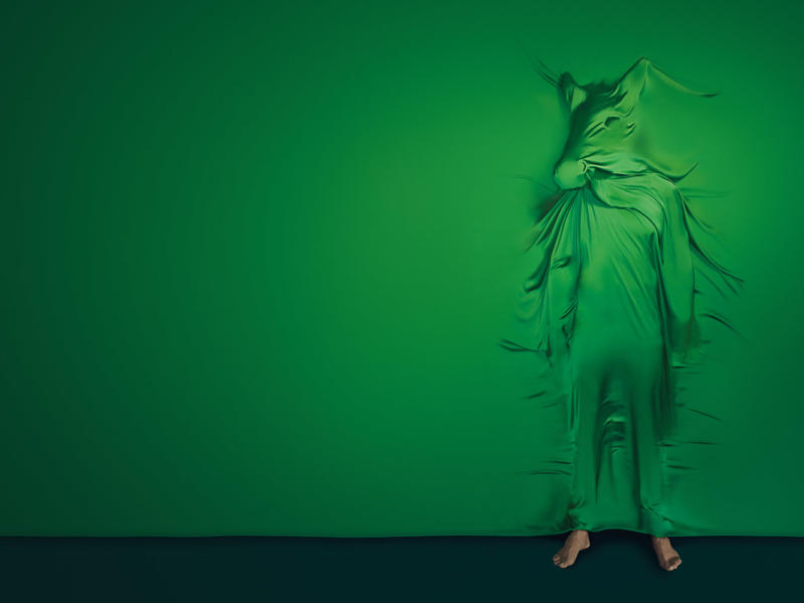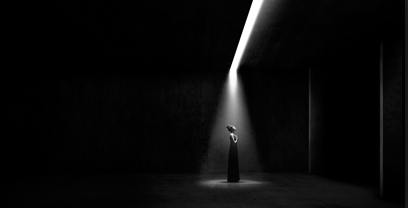A Midsummer Night's Dream at the English National Opera
Image taken from the English National Opera website
A Midsummer Night's Dream, the opera composed by Benjamin Britten was set to a libretto, adapted by both the Composer and the Singer, Peter Pears, from the play by William Shakespeare. It was premiered in 1960 at the Aldeburgh Festival.
ENO’s 2011 dark production of this opera, Directed by Christopher Alden, has perhaps understandably not returned. Instead, ENO has returned to the brilliant 1991 production by the Canadian Director, Robert Carsen.
Once again, ENO has put together a mainly British cast, including five of their Harewood Young Artists. This combination of youthful singing and dreaming leaves us all spellbound.
That is indeed the atmosphere that Robert Carsen (and Associate Director, Emmanuelle Bastet), together with his set Designer, Michael Levine, have tried to create for the audience and unlike the Alden production it works outstandingly. The green stage varies from a huge bed to a number of different beds and everything is transformed to the world of dreams and fairies in the woods around Athens. It is a fun show with lots of laughs interspersed by the brilliance of Britten’s fabulous score.
The orchestral scoring varies to fit the nature of each set of characters: the bright percussive sound of harps; keyboards and percussion for the fairy world; warm strings and wind for the pairs of lovers; and lower woodwind and brass for the troupe/mechanicals. Interestingly, Britten wrote the lead male role of Oberon for a countertenor voice and wrote some of his most melodious music in the mechanicals theatre presentation to the group of lovers in the second Act. This was outstandingly performed and very movingly received.
In this production, Oberon was sung by the South African countertenor, Christopher Ainslie, who started his career at the Royal College of Music in 2005 and is in demand all over Europe. The Alden production had the imperious Lestyn Davies in this role and although Ainslie has not quite reached his heights, he gave a relaxed performance in a not overtaxing role as the music does not require the countertenor to sing both at the top of the alto range and forte.
His fairy queen, Tytania, was sung by the Harewood Artist and winner of the 2016 Susan Chilcott Award, Lancashire born Soraya Mafi. She has a winning coquettish charm with a clear and strong soprano voice, which is easy to listen to and possesses great clarity.
The other Harewood artists were David Webb, singing Lysander, Matthew Durkan as Demetrius, Eleanor Dennis singing Helena and Andri Bjorn Robertsson singing Theseus. All clearly have great careers ahead and gave wholehearted performances. Hermia was sung by the British mezzo soprano, Clare Presland and Bottom was sung by the outstanding Australian bass, Joshua Bloom, who completely owned his role. Puck was played by the very funny Cypriot born English actor, Miltos Yerolemou, who has moved from his many film roles and his role in Game of Thrones to give an outstandingly funny performance, constantly throwing himself off the stage and frightening the exceptional Trinity Boys Choir, who performed as the Chorus of fairies.
Making his debut conducting the outstanding ENO orchestra, was the British Conductor, Alexander Soddy, who has been Music Director at the National Theatre Mannheim since 2016 and has been guest Conductor at a number of different opera houses in Germany and Austria. He gave us a pacey performance sizzling with sound and glint and the evening proceeded at a great pace with enormous swells of beautiful music as a result.
Lastly, but not least, was the choreography of the incredible Matthew Bourne, who is one of the most important figures in contemporary dance today. The revival Choreographer was Daisy May Kemp.
An outstanding revival of an outstanding opera.
David Buchler







